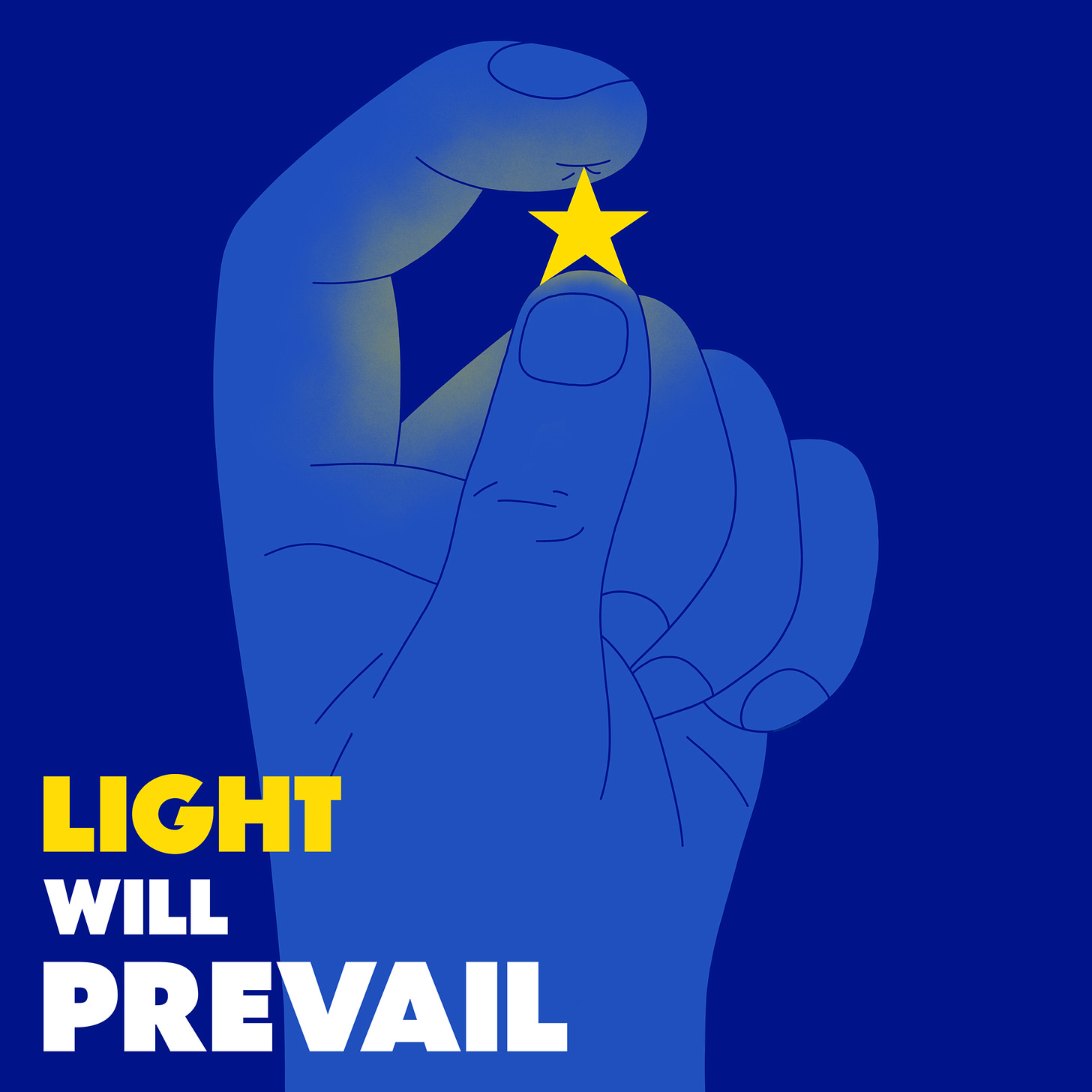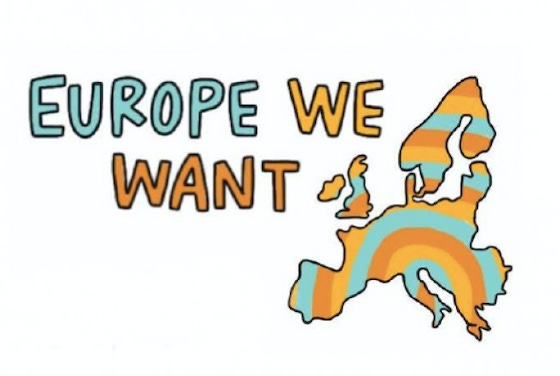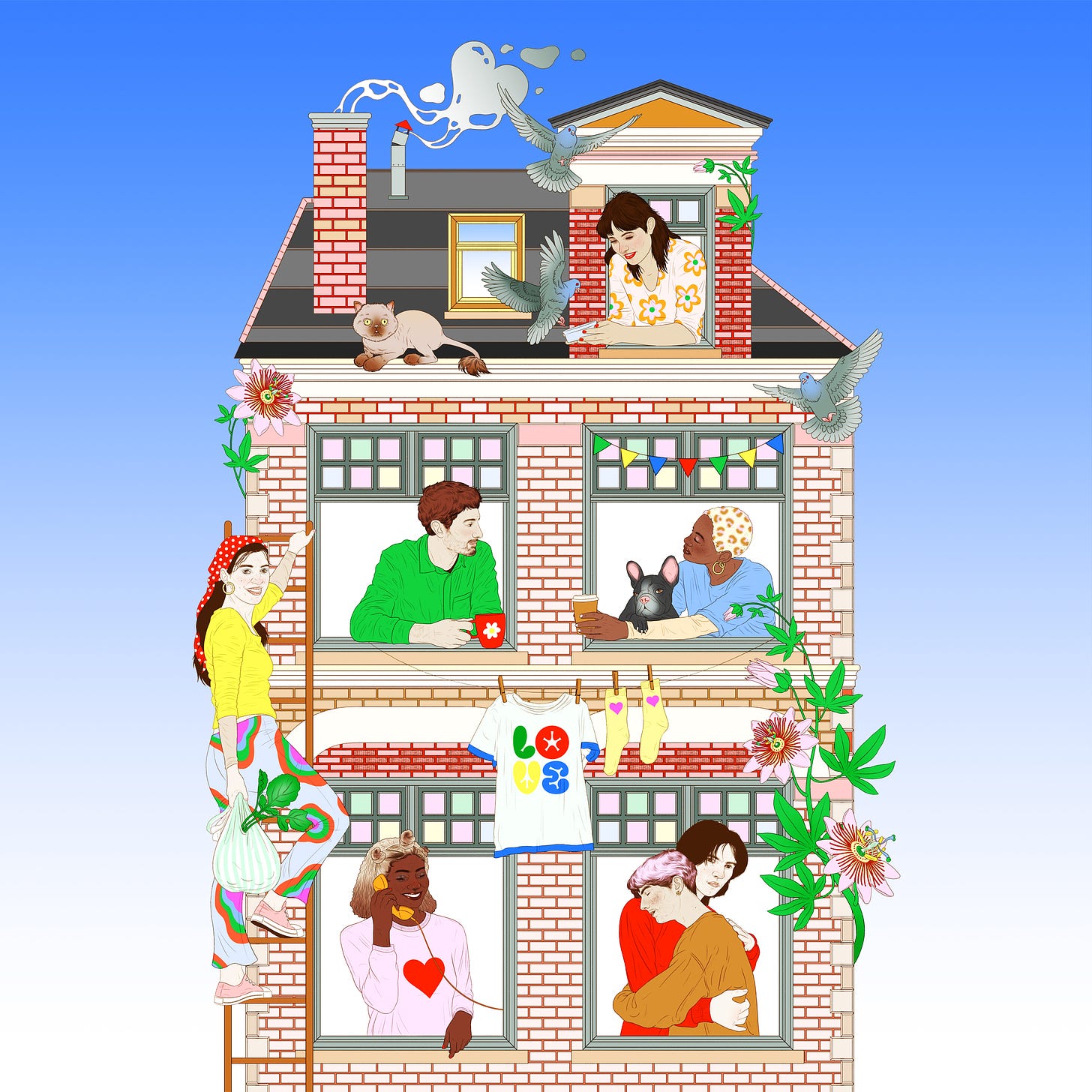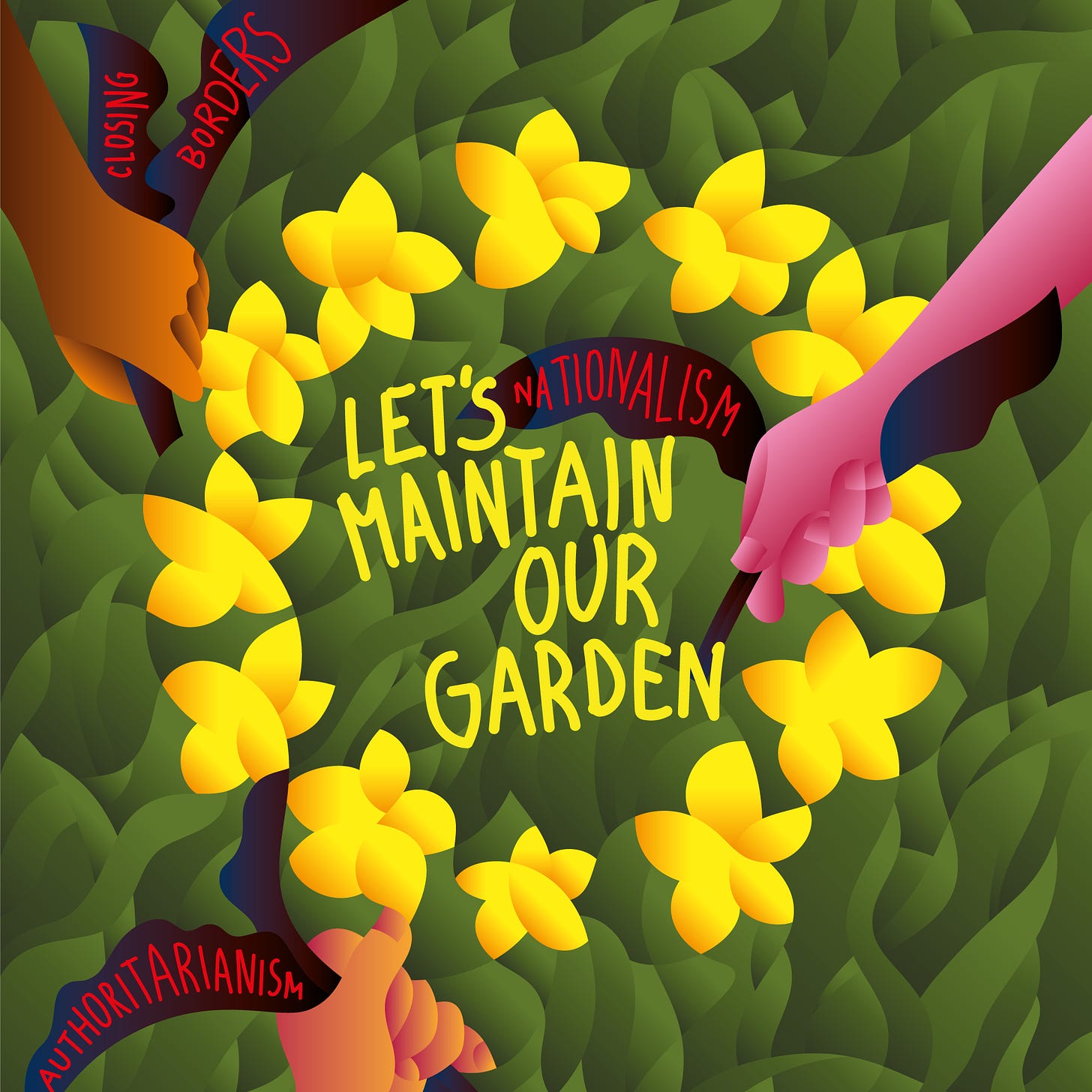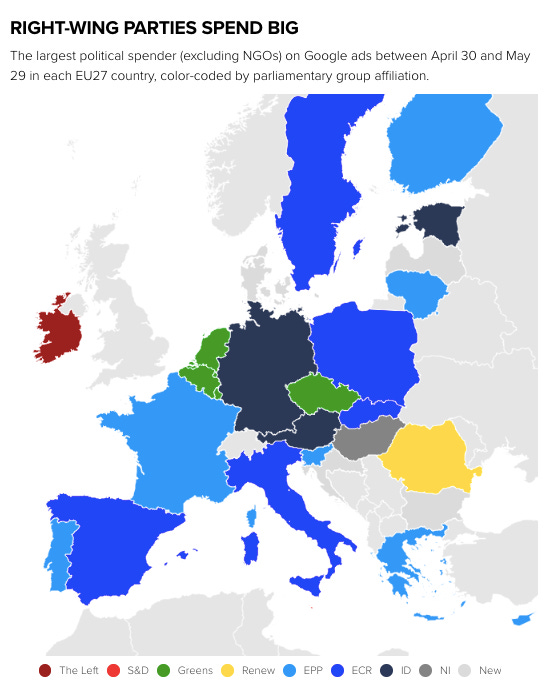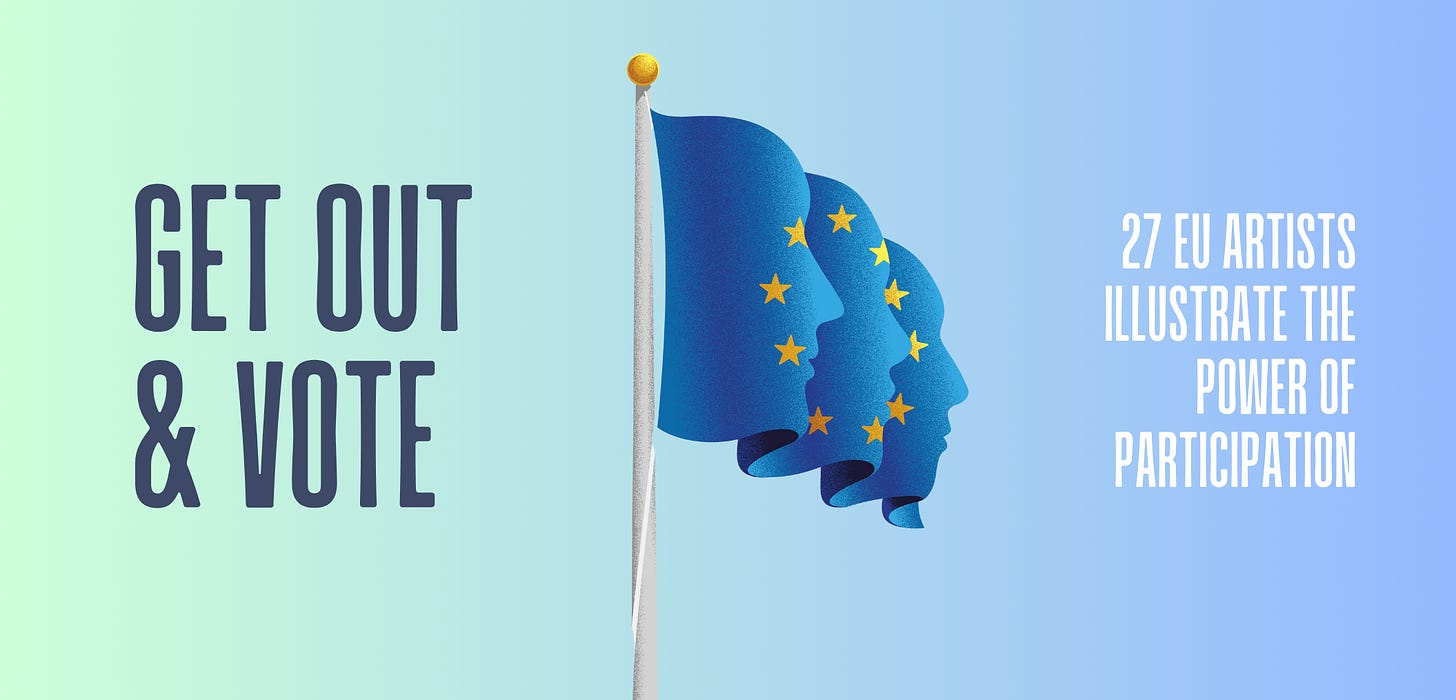This edition is for anyone who is feeling down post-EU elections: anyone who, like me, feels a deep unease right in the pit of their stomach seeing the far-right make electoral gains across Europe. It helps to recognize the biological nature of fear, to be aware of it, take a deep breath, and remain focused on our vision and values.
Here is an agenda for what pro-Europeans and progressives can do next.
Why the only sustainably pro-European narrative is a hopeful narrative
Our job right now: maintain hope
Hope is also essential for building support for the very idea of Europe itself.
This could be the moment that democracy crumbles and nationalism and authoritarianism return.
It could also be the moment that we see a new resurgence of civic engagement from people across the continent who are determined to keep care and solidarity strong.
Fear will tear us apart, again
Of all the dangers facing the idea of Europe today, the most dangerous is fear itself: Politicians adopting far-right positions and progressive citizens becoming despondent and disengaging from politics altogether. These are exactly the steps that would guarantee a successful return of authoritarianism to Europe.
Fear dominated these elections both in terms of finance and attention: imagine if we dedicated a fraction of those resources to winning a majority for empathy, compassion, togetherness, and care.
Here is what we can do to maintain hope in Europe
We can maintain hope and trust - the cornerstones of democracy and European integration
The philosopher Martha Nussbaum says fear is damaging to democratic society because they depend on us entrusting power over our lives to our fellow citizens, whereas the authoritarian wants us fearful so that we hand over all power to them alone. Hope swells outward, fear shrinks back.
This is doubly true of democratic institutions that bring together citizens from different countries, asking them to pool both resources and authority in a common pot and trust each other to share them out fairly.
The more we build institutions on shared values and common interest, the greater the need for trust and a hopeful mindset about each other. If your case for integration is protection from a dangerous world, you are reinforcing the mindset that makes people shrink back to a smaller, nationalist in-group.
We can promote pro-European mindsets: abundance and interdependence
We have to build an abundance mindset, not a scarcity one. It may feel politically expedient to push harsh, cruel, utilitarian policies on issues like debt and migration. But reinforces the very thinking that undermines European integration itself.
Europe is built on an acceptance of the fact that in society we are interdependent – we depend upon each other to thrive. The more European institutions undermine solidarity, the more they undermine their own legitimacy.
Absent from these elections was the lesson from the Covid-19 pandemic: our societies are only as resilient as their capacity to care for each other.
We can train our solidarity muscle
Like hope and empathy, solidarity is a muscle that we train. The more we use it, the stronger it gets. Practicing solidarity with new Europeans, for example, trains us to have solidarity for other Europeans: farmers, students, carers.
When Europe fails to exercise solidarity with people in need at its borders, that muscle grows fatally weaker and fails to function when we need it most during the pandemic. If we cannot see that people from Europe and beyond are all human, we have little chance of acting as if all the different people - whatever their language, race, identity - inside Europe are part of a shared community.
We can activate the identity of being European
Living together in Europe requires an activation of multiple identities within individuals: we can simultaneously belong to one or more nations, to regions or cities, to clubs and communities, and to the human race. It is not a choice between belonging to one nation or to Europe, but about our ability to activate multiple identities that co-exist.
When we are aware of our own multiplicity, we are more likely to recognise and be curious about people who are different, and recognise that those different people also contain multitudes - inoculating us against the simplistic stereotypes that underpin dehumanization.
As Lilliana Mason says in this podcast (34 min) and this article, “just being a member of two non-overlapping identity categories breeds tolerance, because it exposes you to a broader range of people”.
We can reinvent what “being” European looks like
Research also shows that very often it is community that reinforces values and support for policies and institutions - not the other way around. So we have to ask, what does it look like to act “European”?
First of all, this means changing ideas of what a European looks like. But this is not just about identity, but also action. It also means to think of everyday habits and rituals - actions people can take that “feel” European.
We need to develop new habits, rituals and practices that people can do everyday that reinforces the feeling of European-ness in our identity next to other identities. Think Erasmus, Easyjet holidays and the UEFA Champions League. Experience drives our thinking. It is up to our activism to create the experiences that will shape the new inclusive identities we want to live with.
We can promote the values that underpin the societies we want
When Irish people voted for the Lisbon Treaty at the second time of asking in 2009, the dominant narrative was set by a campaign called “We Belong”. How desperately that messaged is missed in the Brexit debates and today in places where eurosceptic parties gained.
What is the story we want to tell about Europe? In 2019 a group of civil society groups developed and focus group tested hopeful ways of talking about the more caring societies we want in Europe, stressing the need to talk about care, empathy and community. This guide never gets old.
“EMPATHY is the core value to express in relation to Europe. People see it as the starting point for the societies we want to build and what other values need to be based on.”
We can use better metaphors for European integration
It was interesting to see conservative Commission President Ursula von der Leyen use the slogan “Our Home” to talk about Europe, drawing on a metaphor first used by Mikhail Gorbachev. That is an improvement on metaphors like “fortress” or generic words like “union” and vague poster campaigns that talk about values without explaining them.
We can use words that tell a better story about how Europe works, and how people make it work. We can use words that describe Europe as we want it to be in future. The Friends of the Earth research above found that people struggled to connect the concepts of “Europe” and “community” - we need to change that.
We can build Europe with inspiration, emotions and stories, not facts
The work of creating a real Europe that exists in hearts and minds, not just institutions, cannot be achieved by laws, treaties and policies alone, it has to be built with the daily work of building community and creating the space for people to build personal connections to one another.
It is up to us to nurture the attitudes and behavior we want to see in the world. Even more so when elected leaders are likely to spread fear and hate.
With the decline of old ideas, there is a space for new political worldviews. We have to fill it with hope.
Election notes
One very practical thing we need to do is organize hope as effectively as the far-right organized fear (with the support of foreign funding). Politico reports that fear-based messaging vastly outspent hope-based on social media in this election, usually coming from populists, but even progressive content tended to focus on threat and crisis.
As usual, Fine Acts had the graphics covered for these elections.
Congratulations to hope-based org Civocracy for their “Vote Anyway” campaign. Not too late to join their 9o6 movement.
The most powerful ad I saw during the elections showed grandparents recounting major moments of European history to their grandchildren, exhorting them to protect democracy. I found it moving, but also worry that we can no longer rely on talking about the past to promote democracy and human rights. It also left migration and colonialism out of the European story. Thanks to Neil Crowther for sharing.
Another campaign that activated inter-generational solidarity: Europe’s Grandchildren.
In Ireland the Electoral Commission ran a campaign focused on your vote being your voice (thanks to Brian Dawson for sharing)
Artists in Estonia made an art installation out of recycled materials with a countdown clock to the elections in front of the Tartu university library.
French group Singa were one of the few to loudly and proudly put forward a pro-migration message (Thanks to Ksenia Skorik for the share).
Hopey, changey stuff
A reminder to check out the Narrative Directory - a comprehensive resource of all the organizations working on narrative change around the world prepared by IRIS.
More evidence that negation backfires, care of Brett Davidson.
According to researchers, people needed more time to think about negatively spelled adjectives than positively spelled adjectives. Their views were also different. Tracking the cursor showed that people first thought that negated phrases meant positive things, but then changed their minds and thought they meant the opposite. This study shows how difficult it is for our minds to understand negation.




